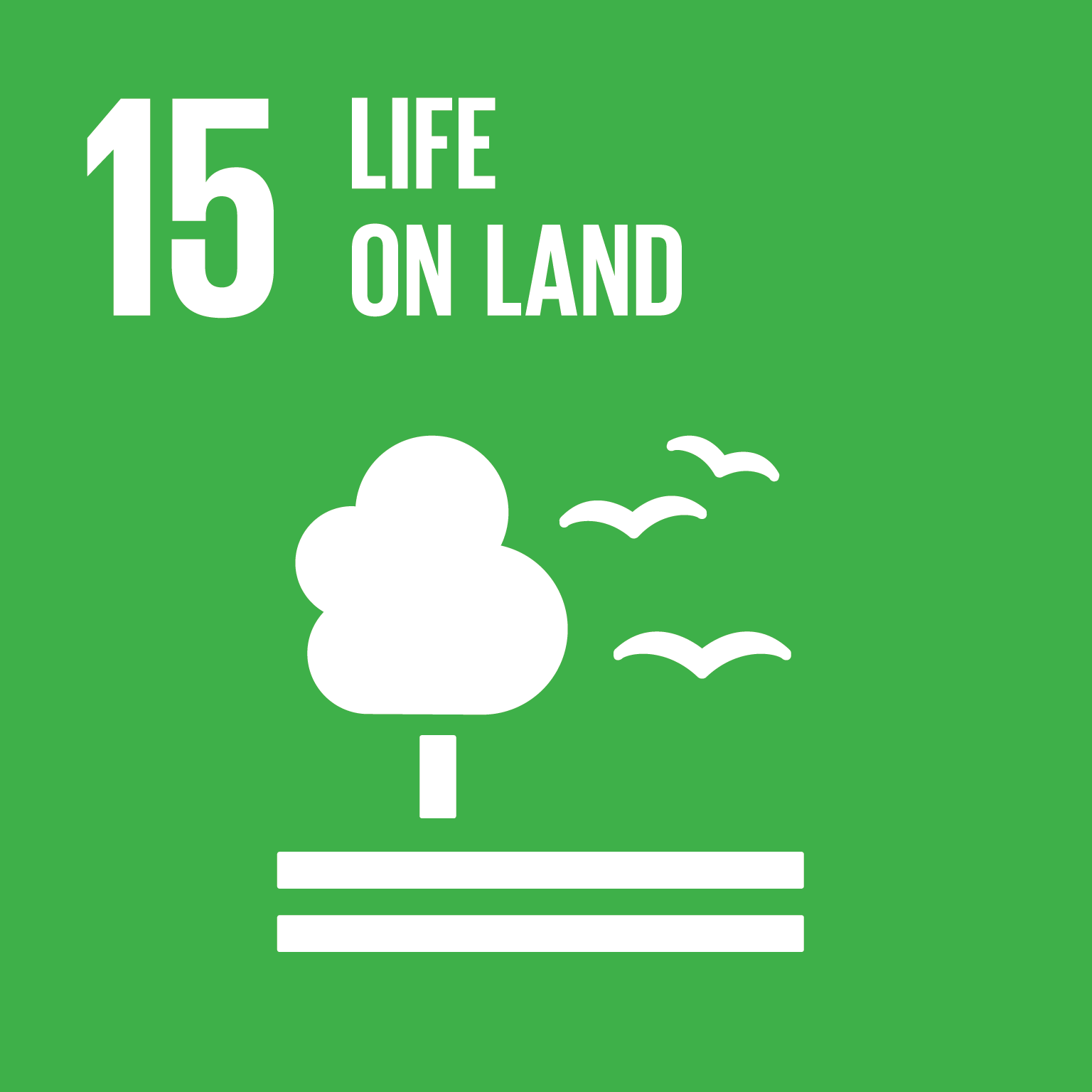Goal 15: Life on Land
|
Preserving diverse forms of life on land requires targeted efforts to protect, restore and promote the conservation and sustainable use of terrestrial and other ecosystems. Goal 15 focuses specifically on managing forests sustainably, restoring degraded lands and successfully combating desertification, reducing degraded natural habitats and ending biodiversity loss, the UN write on their website. Examples on research from UCPH addressing goal 15: |
|
Greening of Drylands |
|
|
Current research shows the earths dry areas have become more fertile on a global scale during the last 30 years. This is in contrast to the current climate-discourse, where desertification is comprehended as a increasing problem. This project tries to achieve knowledge on current and future vegetation-ressources in dry areas. To this end:
|
Contactperson for more information on the project Rasmus Fensholt. Primary Sustainable Development Goals: 13, 15 |
Organic Cotton for Employment, Growth and Environment? |
|
|
Through this research project, researchers develop and apply an interdisciplinary framework for assessing and comparing environmental, economic, and social sustainability of cotton production in Sub-Saharan Africa. The analysis includes several currently practiced organic and conventional ways of cotton production as well as some innovative—potentially more sustainable—ways of cotton production. Sustainability is assessed by several indicators, e.g. pesticide residues, soil fertility, greenhouse gas emissions, competitiveness, income and employment generation, and social conditions along the value chains. The empirical studies are conducted in Benin and Tanzania, representing West and East Africa, respectively. |
Read more about SCOPA (Sustainable Cotton Production in Africa) on the project website.
Primary Sustainable Development Goals: 8, 12 and 15 This text is redirected by The Secretariat for Development Cooperation at SCIENCE from Department of Food and Ressource Economics |
Community monitoring of forest resources in Cambodia |
|
|
Foreign companies are presently deforesting natural landscapes in Cambodia at an alarming pace often to the detriment of local communities depending on nearby forests resources and ecological services. The project will undertake the first systematic botanical explorations of some of Cambodia’s distinctive forest habitats by engaging residential communities in participatory surveys of species compositions and vegetation structure. The baseline data will be used to identify and assess those sites with the highest conservation and livelihood values. The description above is redirected by SCIENCE from IFRO. The local Prey Lang Community Network (PLCN) are because of CPHU's database and a UCPH developed app now able to patroll, create dialogue, use social media and geo-referencing technology to fight deforestation in a non-violent way in Cambodia by documenting it. Read more about Community monitoring of forests resources in Cambodia. Primary Sustainable Development Goals: 13, 15 |
|
Provision of Adequate Tree Seed Portfolios |
|
|
In the project PATSPO (Provision of Adequate Tree Seed Portfolios) researchers from UCPH contribute to the development of science based guidelines for forest landscaper restoration in Ethiopia. The project runs from 2017-2021 and is part of the largest global restauration of forest and forest landscapes in history called Bonn Challenge. It is financed by the Norwegian International Climate and Forest Initiative (NICFI) through the Royal Norwegian Embassy in Ethiopia (RNE) to the World Agroforestry Centre (the International Centre for Research in Agroforestry – ICRAF). The project is described as following in the PATSPO Projectbrief: The project will ensure forest restoration projects and tree planting actors having high quality seed of the most important tree species used for forest landscape restoration and all other tree planting activities in Ethiopia. The project is a multiple tree species programme designed to provide:
|
Follow the links to read more about PATSPO and about UCPH's contribution. Primary Sustainable Development Goals: 13, 15 |
Agricultural Transformation by Innovation (AgTraIn, 2011-2016) |
|
|
AgTraIn was a world-class Joint Doctoral Program (180 ECTS) between University of Copenhagen and 5 other leading European universities, funded by the EU Erasmus+: Erasmus Mundus program to enhance and promote European higher education throughout the world. The main objective of the AgTraIn program was to train and educate subject-area experts capable of successful development and transformation of farming systems in the developing world. Thematically, the AgTraIn programme dealt with agricultural production chains, the natural resource base and the involved communities. The scope of AgTraIn ranged from the technical aspects of agricultural production, over post-harvest management, processing and value-addition, to market access and commercialisation. The emphasis was on applied research and a key feature of the program is the involvement of key stakeholders in identifying research questions and participating in project formulation. |
Copenhagen University worked as a partner on the AgTraIn programme. Primary Sustainable Development Goals: 4, 12 and 15 |

